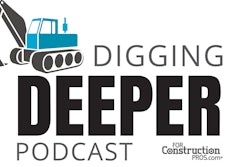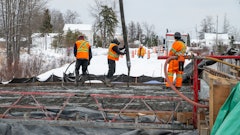
As more younger people enter the labor pool, and as technology increases daily, more workers turn to social media outlets for news, entertainment, and networking. Social media posts can be good and bad. On the one hand, “good” social media can help your business, as word about your company, workers, or quality of work spreads among the industry or public. On the other hand, “bad” social media can really hurt your business as customers, or worse, employees, complain in a public forum about your company or its practices. Concrete contractors are not exempt.
Too often, the immediate response to employee posts is to try to shut them down, and if that fails, discipline or terminate the employee. This can be a very dangerous practice.
The National Labor Relations Act, or NLRA, is a federal law that regulates how workers are treated by employers and how they can be represented by collective bargaining agents. The NLRA applies to almost all concrete contractors, whether unionized or not. The law is administered by the National Labor Relations Board, or NLRB, which consists of five members who serve staggered terms and are appointed by the President and confirmed by the Senate. This process means that the composition of the Board roughly follows political change in the White House and Congress.
Section 7 of the NLRA protects an employee’s right to choose a collective bargaining representative and to engage in “protected concerted activity.” Employee activity is “protected” if it relates to terms and conditions of employment; it is “concerted” activity if the employee is acting for the benefit or on behalf of others, and not merely for his or her personal interests. An employer cannot interfere with, restrain, or coerce workers exercising their Section 7 rights.
In recent years, the Board has taken a very liberal view of employee activity, particularly with respect to social media. While that is slowly changing now that the Board has a Republican majority, concrete contractors still need to beware of precipitous reprisals against employees who post negative comments on social media outlets.
For many years, the Board held that employer rules that are vague, ambiguous, or overbroad and could be construed as restricting employees’ Section 7 rights were unenforceable under the NLRA. Essentially, the Board adopted a test that looks at the explicit language of the rule or policy; if it expressly restricts Section 7 activities, it is unlawful. Even where the rule or policy does not explicitly restrict employee rights, it will still be found to be unlawful if:
- It can reasonably be construed to restrict Section 7 rights.
- It was created in response to union activity.
- It has actually been applied against Section 7 rights.
This test comes from a 2004 NLRB case commonly called Lutheran Heritage. Last December, however, the Board abandoned this test.
Now, the Board will look at a facially neutral rule or policy to determine the balance between the NLRA’s rules and the employer’s legitimate, business justification for the rule or policy. The Board identified three categories of rules that would result from this new balancing test:
- Rules that are facially lawful because either there is no adverse impact on NLRA rights or any impact is outweighed by the employer’s justifications.
- Rules that require individualized scrutiny to determine adverse impact and business justification; and
- Rules that are facially unlawful because they directly affect NLRA rights with insufficient business justification.
The Board ruled that most employer “civility” rules fall under the first category, but that rules prohibiting discussion of wages and/or benefits or other terms and conditions of employment fall under the last category.
So, what does all this mean to concrete contractors? If you adopt a social media policy, try to make it as specific as possible and include the business reasons for the rule or policy. If you choose not to adopt a formal policy, be very careful about social media posts. Your treatment of employees should never be construed as limiting their rights to talk or “gripe” about work. Instead, you should try to be open and communicate with all employees to express your commitment to their well-being. You can try to get disgruntled employees to agree to rescind adverse posts, but be very careful about threatening discipline. If social media becomes particularly adverse, you might consider hiring a public relations company to combat the negative image. If nothing else, a good vendor will help you put out the “good” word about your business.



















